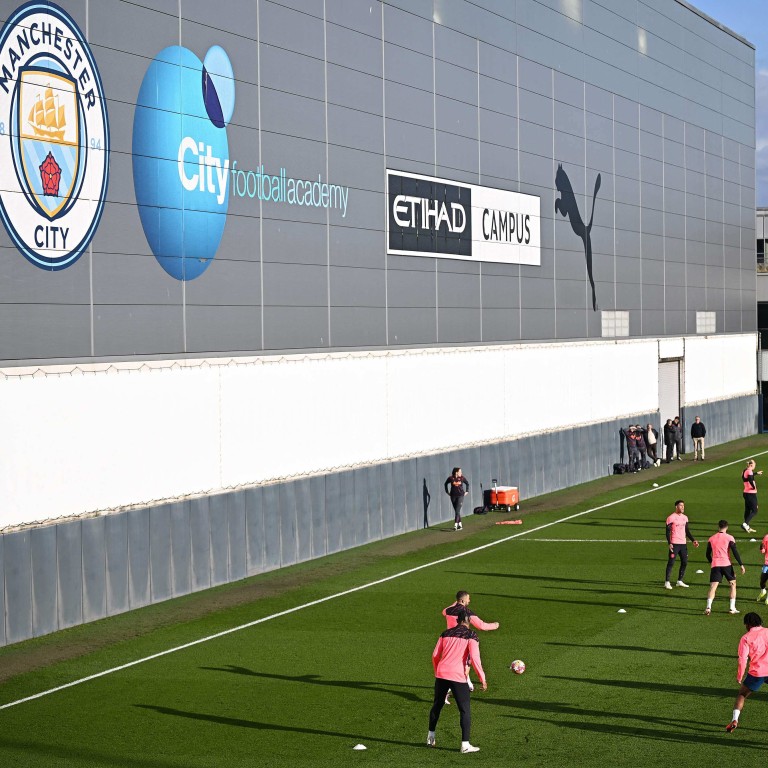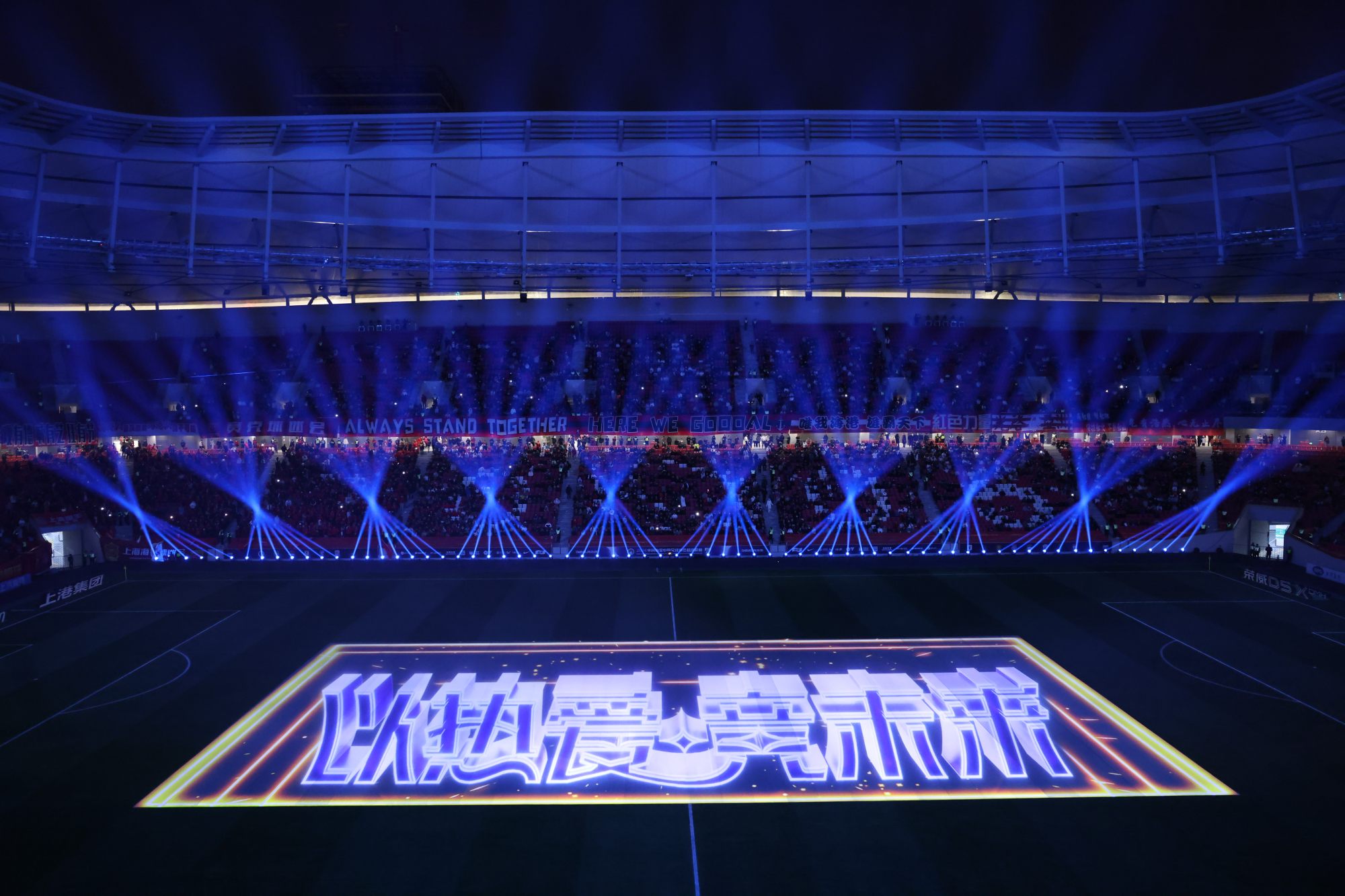
Can Manchester City’s owners succeed in Chinese football with Shenzhen Peng City?
- Co-owned by City Football Group and newly relocated from Chengdu, the club were routed in their first home Chinese Super League match, with a modest crowd
- Fans complain that ticket prices are not attractive enough, while others highlight only three glaring issues on the pitch: defence, midfield and attack
Shenzhen Peng City were urged to sign more players and drop ticket prices to bolster their assault on football’s Chinese Super League after back-to-back defeats to start their first season since relocating from Chengdu.
A narrow one-goal defeat at Zhejiang in their opening match last week was followed by a 4-0 thrashing by Tianjin Jinmen Tiger on their home debut on Sunday.
The results hinted at the rebranded team’s immediate prospects in a new home in the southern city bordering Hong Kong, having moved 1,340km (833 miles) from the country’s southwest, where they had been known as Sichuan Jiuniu since their origins in 2017.
Also signalling the challenge for the club’s co-owner City Football Group (CFG) was an attendance of 7,671 at the 44,050-seater Bao’an Stadium, the league’s lowest attendance this season and almost 15,000 below its average.

Some fans used Chinese social media to tell CFG the ticket prices were not attractive enough for a team putting down roots. The cheapest ticket cost 120 yuan (HK$130, or US$17), rising to 360 yuan, while season tickets are available for between 850 and 1,500 yuan, or 600 yuan for students.
“With such a price and a humiliating defeat, I’d rather go watch a League One match,” one of the Weibo comments read.
A fan from Shenzhen’s home province of Guangdong said that the team’s lack of readiness for the top flight was typical of those used to the lower divisions but one owned by CFG should fare much better.
The Abu Dhabi holding company also owns English Premier League champions Manchester City as well as several other clubs including New York City, Mumbai City and Melbourne City.
A Weibo user from Hunan said Peng City would not survive the Super League if CFG did not splash the cash.
“Just get a few reinforcements,” they wrote.
“During the international break we need to muscle up our defensive line, the strikers need to hit the back of the net and we need reinforcements in the midfield, too,” another commented.
“Let’s see how the team performs against those who are also fighting for survival; the first two matches are just ‘practices’ and a chance to adapt to the Super League.”
“The native centre backs and defensive midfielders were not up to the standard – the defence won’t make the grade with only Rade Dugalic,” a comment from Guangdong read, referencing the newly recruited Serb.

“From the coach to the foreign players and the formation set-up, everything is of League One standard still,” another comment from Guangdong said.
Orr has yet to register a start, coming on as a second-half substitute in both matches. He managed 15 goals in 26 league matches last season while earning the second tier’s player-of-the-season award.
After China’s Messi divorce, football counts cost of own-goal in Hong Kong
It was not only the owners who drew ire, with the tactics of head coach Jesus Tato under scrutiny. Some suggested the Spaniard’s possession-based tactics were not going to be enough to prosper in the country’s top division.
Shenzhen averaged almost 60 per cent possession in each of their first two matches but lacked a cutting edge at the business end of the pitch despite recording 36 shots across the two matches, with only a third of those being on target.
“Shenzhen played better than us in the first half,” a comment from Tianjin read. “Had they been able to take one of those opportunities, the result might not be the same.”

 - Mike Chan.jpeg?itok=EQbwYm3R&v=1669714688)